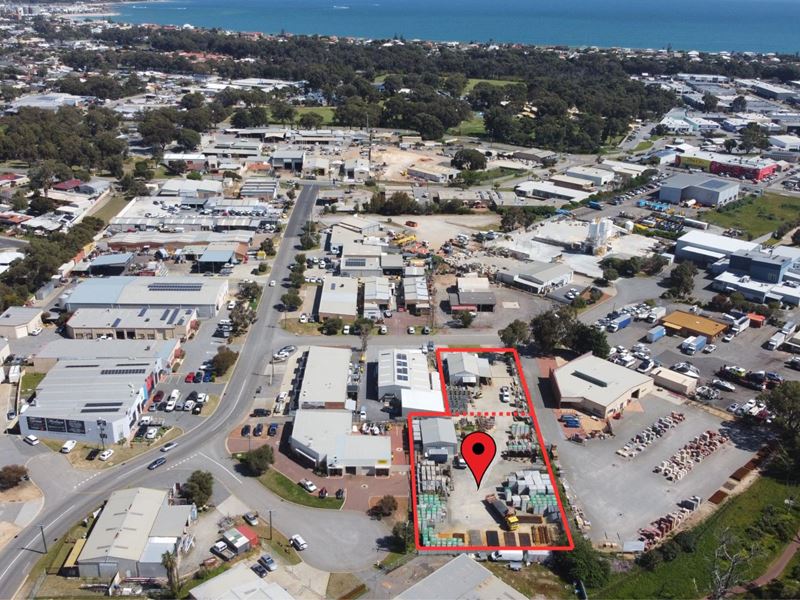Find Perfect Commercial Real Estate for Sale Melbourne
Find Perfect Commercial Real Estate for Sale Melbourne
Blog Article
Navigating the marketplace: Just How to Buy Business Qualities available
Browsing the complex landscape of industrial residential property purchase needs a systematic technique that incorporates numerous important variables. Comprehending the subtleties of different residential or commercial property types, alongside existing market characteristics such as vacancy prices and rental rates, is important for making informed investment decisions.
Understanding Commercial Building Kinds
Comprehending the various types of commercial residential or commercial properties is essential for making enlightened investment decisions. Business property incorporates a diverse variety of residential or commercial property kinds, each with one-of-a-kind attributes and financial investment capacities. The main categories consist of office structures, retail areas, industrial buildings, multifamily household units, and special-purpose facilities.
Workplace buildings are commonly classified right into main enterprise zone (CBD) workplaces, suv offices, and clinical offices, accommodating different company demands. Retail rooms encompass shopping mall, standalone stores, and mixed-use developments, intending to bring in consumers and produce foot web traffic. Industrial residential or commercial properties, consisting of storehouses and producing centers, emphasis on storage space, production, and distribution activities.
Multifamily houses, such as house facilities, supply vital housing options while generating rental revenue. Special-purpose homes include resorts, medical facilities, and schools, offering details functions and commonly needing specialized monitoring.
Comprehending these groups enables investors to align their financial goals with the suitable building kind, examine prospective risks, and evaluate market need. Ultimately, an extensive knowledge of commercial home types is crucial for browsing financial investment possibilities successfully and maximizing returns.
Researching Market Trends
After acquainting oneself with the various kinds of industrial residential properties, the next step entails looking into market fads that influence investment decisions. Understanding these fads is important for making notified selections and making the most of returns. Secret indicators to take a look at consist of openings prices, rental rates, and building gratitude or devaluation trends within the targeted market.
Begin by evaluating local financial problems, as elements such as employment rates, populace growth, and infrastructure growth can considerably influence business realty need. Additionally, look at consumer behavior fads, which can dictate the success of particular property types, such as retail versus workplace.
Utilize trusted resources for market data, including genuine estate records, market publications, and neighborhood government statistics. Connecting with property professionals, participating in sector meetings, and joining regional company organizations can give useful insights into emerging fads and opportunities.
Assessing Location and Access

In addition, take into consideration the distance to important services, consisting of banks, restaurants, and retail facilities, which can improve the overall appeal of the place. The top quality of facilities, such as roads and car park facilities, likewise plays a significant function in ease of access. A well-maintained residential property in a strategically located area can generate better returns on financial investment and decrease job prices.

Funding Your Acquisition
Safeguarding funding for a business property acquisition is an important step that can considerably affect the total success of your investment. The funding landscape for commercial realty varies considerably from residential alternatives, requiring a clear understanding of your selections.
First, take into consideration traditional finances, typically supplied by banks and lending institution, which need a strong credit history score, a substantial deposit, and evidence of income. These finances typically have affordable interest prices yet can include rigorous underwriting processes.
Conversely, check out Local business Administration (SBA) finances, which provide particularly to local business proprietors looking for to get business buildings. These finances feature reduced deposits and longer payment terms, making them an attractive alternative for numerous financiers.
Another avenue is exclusive funding or partnerships, where investors pool resources to share the monetary worry and threats. This can be useful for those without ample resources or credit report.
Finally, ensure you perform a complete monetary analysis and task future income streams to determine one of the most ideal financing structure. Thoughtful preparation in this stage will prepare for a successful business residential or commercial property financial investment.
Working Out the Purchase Agreement

Key components to concentrate on consist of the purchase cost, backups, and shutting timeline. Establishing a fair purchase rate calls for thorough market research and an in-depth appraisal of the residential or commercial property's worth. commercial sales listings melbourne. Backups, such as funding, building examinations, or ecological assessments, are important as they safeguard the buyer's interests and offer a chance to renegotiate if problems occur
In addition, the closing timeline should be equally concurred upon, ensuring both events have enough time to accomplish their obligations. Clear interaction throughout the negotiation procedure is crucial; misconceptions can cause delays and conflicts.
Final Thought
In conclusion, effectively navigating the market for business residential properties offer for sale necessitates a comprehensive approach that includes understanding residential property types, evaluating market patterns, and reviewing location aspects. Securing appropriate financing is vital to develop a strong foundation for investment, while efficient settlement of the purchase arrangement guarantees defense of passions throughout the deal. By sticking to these tactical actions, capitalists can improve their potential for success in the affordable landscape of industrial property.
Comprehending the numerous kinds of commercial residential properties is crucial for making informed investment decisions. Business real estate incorporates a varied array of property types, each with one-of-a-kind features and investment capacities.After acquainting oneself with the various types of commercial residential or commercial properties, the next step entails looking into market fads that influence investment decisions. commercial sales listings melbourne. Inevitably, a thorough assessment of location and availability will certainly assist ensure that the commercial home aligns with your investment objectives and market needs
In conclusion, effectively browsing the market for commercial properties for sale necessitates a detailed technique that includes understanding property kinds, assessing market fads, and examining location variables.
Report this page